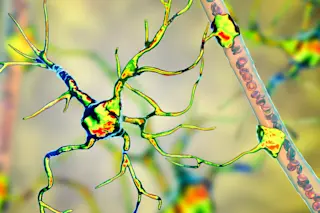Of all the sentences you never want to read from scientists running a study of a promising new medical treatment, high on the list has got to be, "the trial was terminated early for futility." Yet there it is, describing what happened when researchers assessed a surgical procedure that had "slam dunk" written all over it. The idea was to take patients who had complete blockages of the internal carotid artery, which carries blood to the brain, with the not-surprising result that they had insufficient blood flow to the brain. The patients had also had at least one transient ischemic attack (TIA), or "mini-stroke," as a result of blood supply to a part of the brain being temporarily reduced or blocked altogether. Half the patients in the study received standard medical treatment, such as aspirin and other anti-clotting drugs plus anti-hypertension drugs, while the other half got the promising surgery: ...
When Biology Refuses to Listen to Medical Logic
Carotid artery surgery for stroke prevention proved ineffective compared to standard medical care, raising questions about innovative treatments.
More on Discover
Stay Curious
SubscribeTo The Magazine
Save up to 40% off the cover price when you subscribe to Discover magazine.
Subscribe












